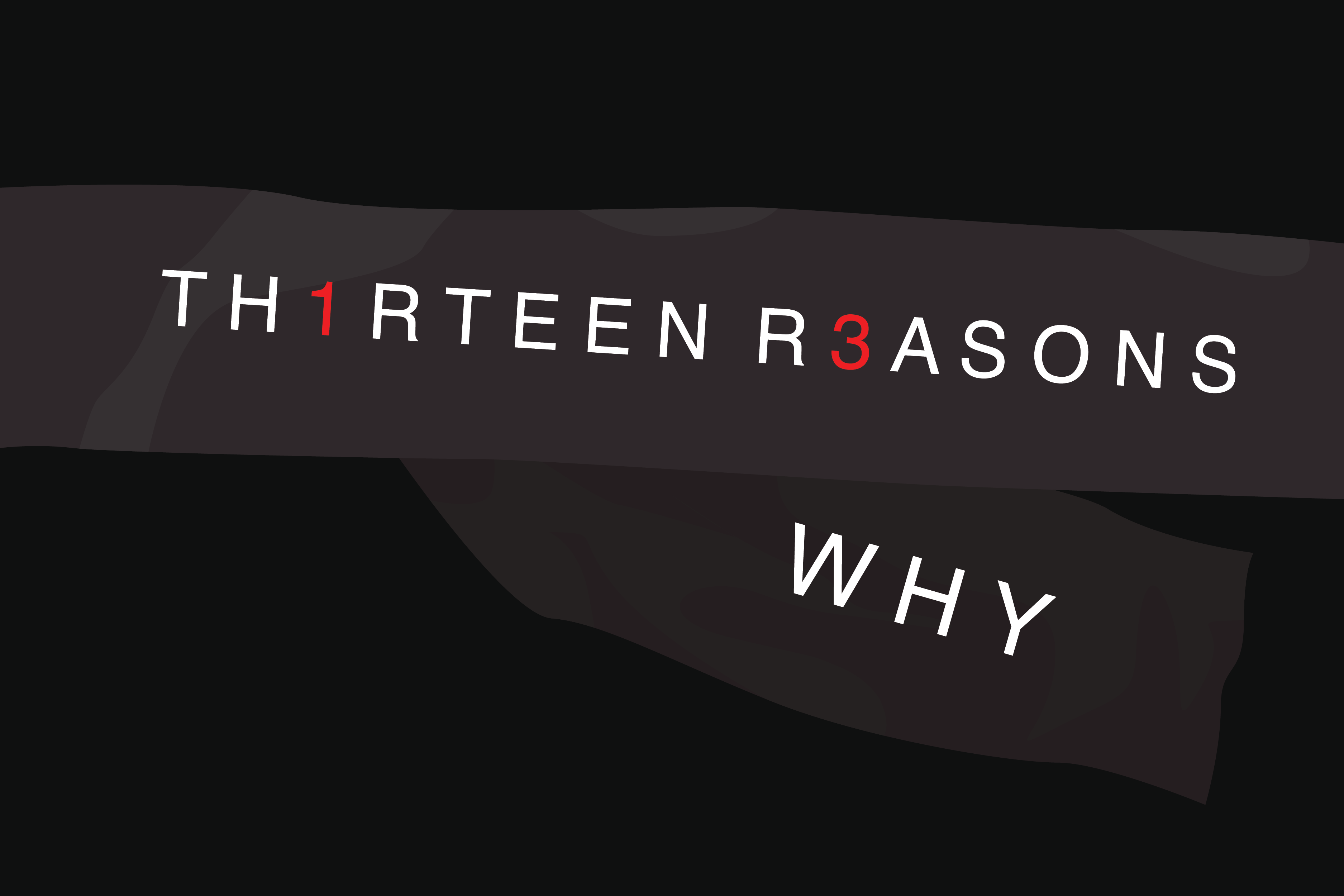
There are alternatives to talking about mental health
Content warnings: suicide; depression and anxiety; sexual assault
13 Reasons Why. I know everyone and their mother is talking about it. Except me. I will never watch 13 episodes of a show that promotes a problematic narrative, and here’s why…
I have struggled with depression and anxiety my entire life, and I know I could never watch the show. Most of the information I utilize in this article about plot points I found online or overheard in my friends’ conversations. I could never watch it because the content is far too triggering. And the show often goes without content warnings for subjects such as depression, rape and bullying — all facets of each episode. Furthermore, in the final scene, the main character, Hannah Baker, commits suicide via self-harm — another extremely triggering subject. This is ironic since the show explores mental health, yet is problematic for those who actually suffer from these disorders because it does not provide trigger warnings and shows extremely graphic content. This means that many vulnerable viewers may be caught off-guard by the show’s content.
Additionally, the way that Hannah commits suicide is glorified, romanticized and almost glamourous. The blood they show and the way it is done in a bathtub is a trope that has been utilized in the entertainment industry to depict mental health with a very broad and often inaccurate paintbrush. It seems like it’s been done since the beginning, with Romeo and Juliet, who both take their lives for love. So maybe 13 Reasons Why is simply following that narrative: that depression can only end in graphic tragedy.
The show’s target audience is teenagers and young adults who are most vulnerable to mental health struggles. This show leaves a message that is not positive; when Hannah seeks advice from the school counselor, even detailing her suicidal idealization, the school counselor tells Hannah he can’t do anything unless Hannah gives him the name of the classmate who raped her hypothetical friend, and that she should try and move on. From a realistic standpoint, this would never and should never happen.
Realistically, the counselor would have referred Hannah to therapy, even hospitalizing her if her suicidal thoughts were deemed severe enough. Being able to confide in trusted adults — especially licensed ones — is necessary. It is important for the audience to know that they should get help if they experience symptoms of depression and anxiety. Therapy is a great resource that I continue to utilize, and no one should be discouraged from that.
The fact that Hannah even records tapes to those who wronged her and sends them out before her death romanticizes suicide. It depicts her death as the perfect revenge, and that those who bullied her will live in a lifetime of guilt. In all actuality, when someone is considering suicide they would never stage it in the framework of revenge, but more because the emotional pain they endure is too much. With mental health already facing so many barriers due to stigma, romanticization of it only adds fuel to the fire.
Many of my friends have watched the show, so I’ve overheard their conversations about it. But what frustrates me is they have never talked to me as openly about my mental health as they do about Hannah’s. The argument that the show opens doors to conversations about mental health is inaccurate because no one since watching that show has approached me to even ask for my opinion on it.
So, I’m far from satisfied about the dramatized perspective 13 Reasons Why gives. It is, however, a good conversation starter to ask more from the entertainment industry.
But should our mental health even be considered entertainment? According to The Jason Foundation’s website, there are an average of 5,240 suicide attempts per day by people in middle school and high school. And suicide is the second leading cause of death for those ages 10 to 24. How’s that for an accurate portrayal of mental health in the U.S.?
There are other ways to use your time than binge-watching a problematic Netflix show. How about donating to The Trevor Project, which works on suicide prevention with LGBTQIA youth? Or talking to those closest to you about their struggles with mental health?
Who knows, you might even learn about a real narrative surrounding mental health, and one that doesn’t need 13 reasons why.
Written by: Abigail Wang — arts@theaggie.org



